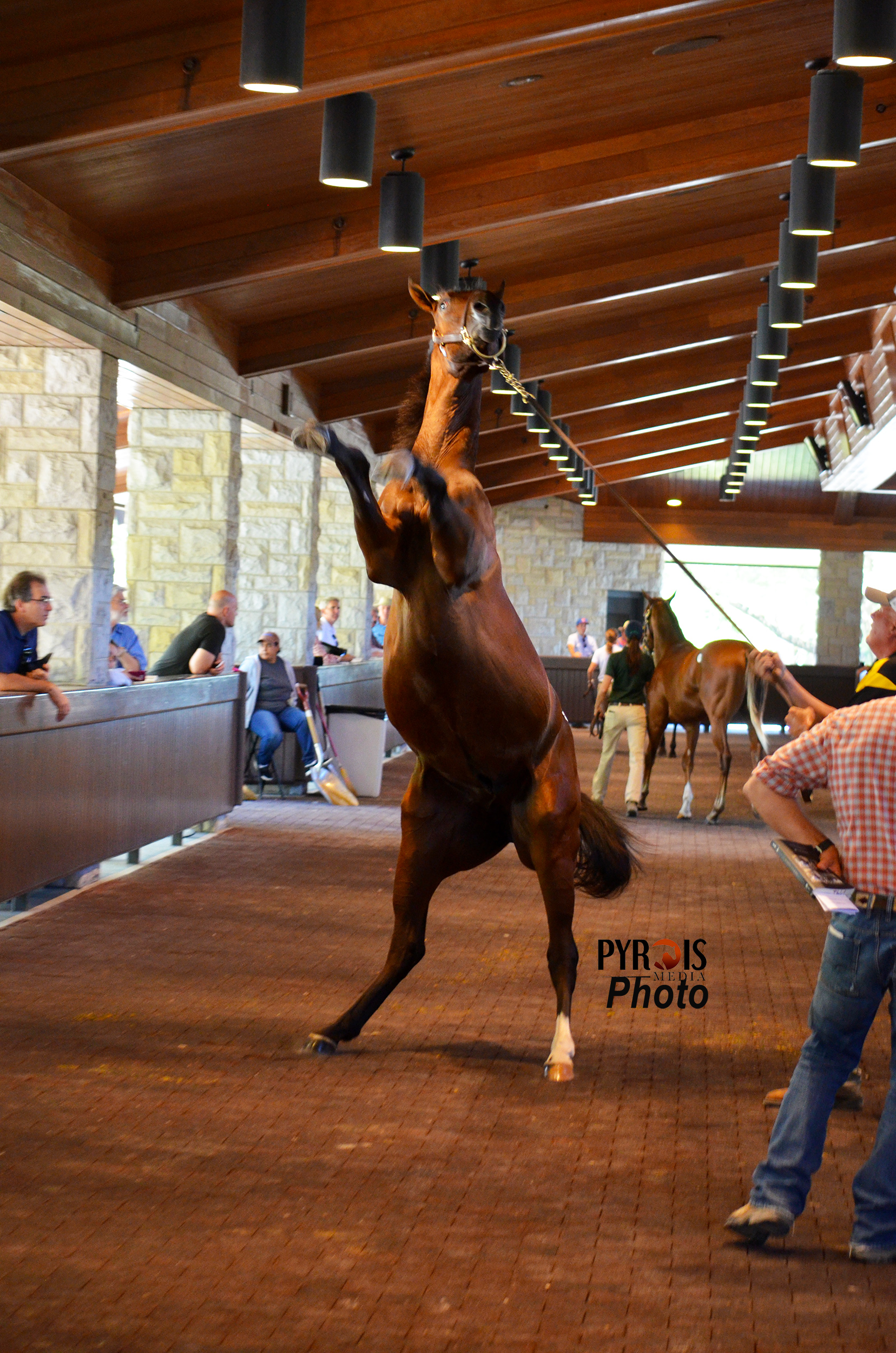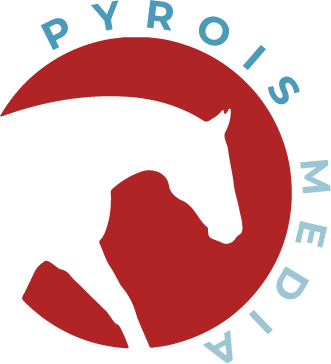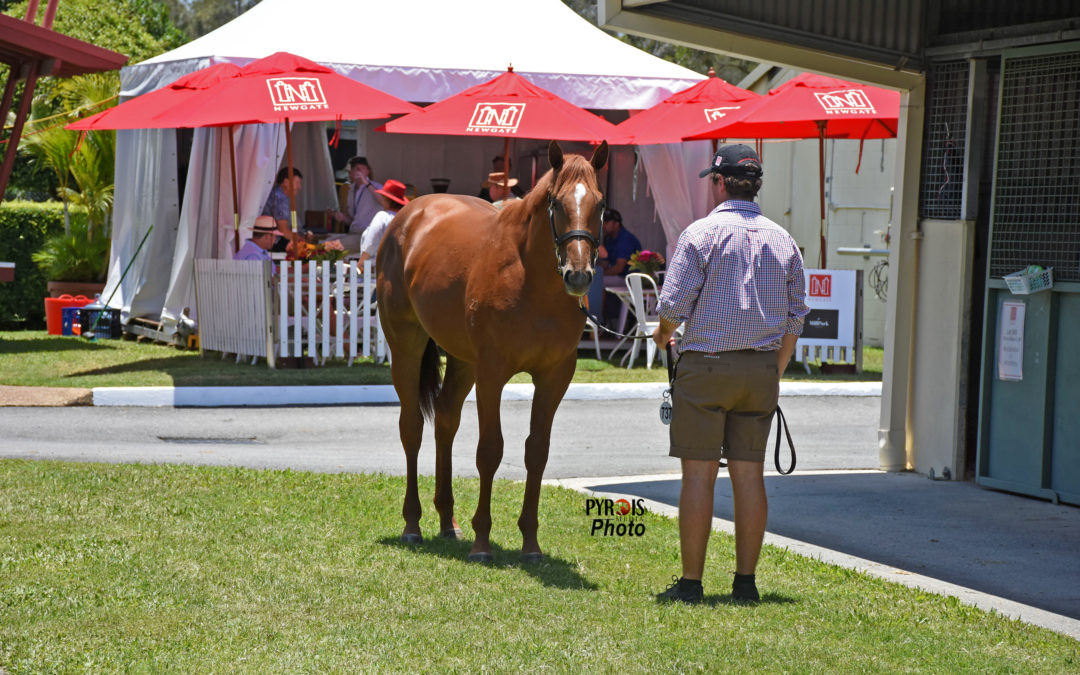Are you doing endless groundwork with your horse in preparation for showmanship or other in-hand classes? If you want to work in the horse industry – especially in the Thoroughbred yearling sales sector – all that work will pay off in a big way.
Showmanship. Known as the bane of my existence when I was in 4-H, it was the class that I felt I just had to get through every show before the fun of my speed event classes. It wasn’t until I moved to Kentucky that I learned how important everything I’d learned in that class was.
In addition to all the non-horse related lessons you learn from the class, it also has plenty of lessons for handling horses as a professional. When you go to any Thoroughbred sale, you’ll often see most skills you learn while practicing for in-hand classes at work.
Of course, the pre-class grooming is an important skill if you do anything competitive with horses. Judges expect your horses to shine and that work starts at home – no matter if you’re showing in an in-hand class or at a horse sale. If you’re working with sale or racehorses, you’ll be expected to groom your charges most days, if not every day.
For Thoroughbred yearlings, this is even more important. Yearling in sales are expected to look even better than show horses to stand out and when they get to the sales grounds they’ll also been groomed before parading in front of buyers.
By the time yearlings get to the sales grounds, grooming will be an easy task for them. Their grooming routine starts from the time they enter sales prep about 10 weeks before their selected sale and its likely they’ve also spent time being groomed at different stages of their life. Entering sales prep is also when their training really kicks off – and when your in-hand lessons will come most into play.
Think of yearling prep and sales as the ultimate in-hand class.
Even though many Thoroughbreds learn the basics from nearly the day they’re born, yearling prep is like baby bootcamp. At the sales, buyers look for horses who stride out at the walk so teaching them to walk well beside you is important.
Think of it like when you’re performing your in-hand pattern and your horse has to look like they’re willing to walk with you – that’s exactly what has to happen at the sales. The horses also have to look like they’re nearly ready to hit the track so they will go through plenty of exercise – giving you even more time to work on their walking skills.
The sales are also a very intense environment for any horse so all those nerves you learned to control at shows will also help you here.
Even the best behaved yearlings can get amped up on the sales grounds and turn into a horse you don’t recognize. But, just like you did you’re your mare turned into a kite as you entered the showmanship ring, you’ll easily handle the yearling as well.

Just like in the show ring, if a yearling turns into a kite you have to act like everything is normal.
If you’re assigned a role as a showperson at the sale, you may perform the same “pattern” 50 or more times with the same yearling, but in front of many different judges. The pattern will be a simple down and back a few times (no fancy pivots, sidepasses, or even jogging) but you will have to quickly set up that yearling just like you have to do in the in-hand classes. Plot twist – if you don’t do it fast enough, your horse is dismissed from the “ring” without being able to show off his true talent.
You may be thinking that after a few times of showing your horse to buyers, they’ll have this down pat and you’ll see your horse sell for millions … but it’s not that easy.
Remember that these are young horses who have short attention spans and they will get tired. By the end of a day of showing, you will have to put on your best “smiling even though my horse isn’t listening” face and convince both buyer and horse you are handling the best animal on the grounds. Again, it’s something you should feel fully comfortable in after having to do the same thing over years of coaxing your horse to look happy in the show ring.
So the next time you decide to put on a halter instead of a bridle and head up to the arena, remember that those lessons will come in handy. Not only will it secure you a blue ribbon at your next show, but may also make you the most in-demand showperson at every Thoroughbred sale in the world.
Have questions about how you can get involved in the equine industry or looking for a mentor? Email Melissa@PyroisMedia.com!

